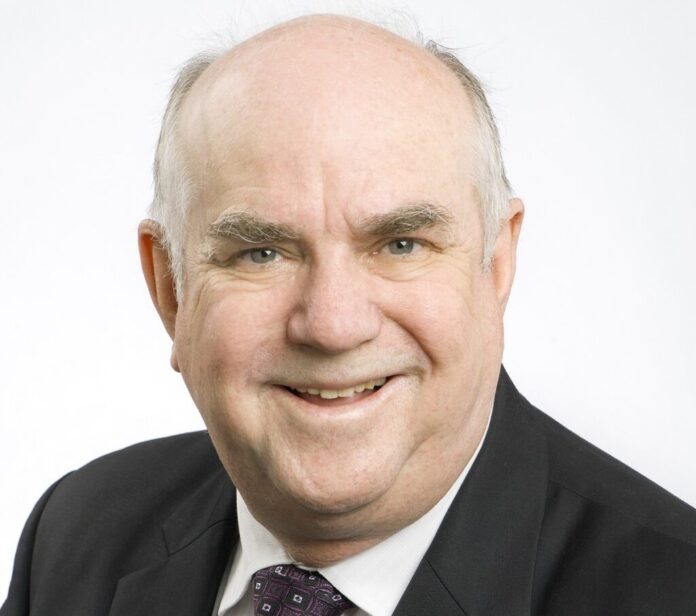The Water Convention, co-organised by PUB and IWA, will be at the heart of Singapore International Water Week 2024, running 18-22 June. The Source hears from Darryl Day, co-chair of the Water Convention Programme Committee, about key themes of the convention.
The Water Convention at Singapore International Water Week is a platform for gathering professionals and technology providers from around the world to share their knowledge, practical experiences, and novel technologies to address current and emerging water challenges.
The inaugural Water Convention in 2008 came to fruition through a collaboration between IWA and PUB, Singapore’s National Water Agency. Co-chair of the Water Convention Programme Committee since 2009 and involved in the Programme Committee from its foundation in 2008, Darryl Day explains that collaboration between IWA and PUB has been key to the Water Convention’s success.
He says: “Because it is a partnership with IWA, we draw from the IWA family – the Ieaders of the Specialist Groups within IWA, and the thought leaders across IWA – and PUB brings a great network from the utilities, in particular, utilities from the region. It’s a match made in heaven.
“We work to bring together a programme that addresses solutions for the region, along with the emerging issues that are keeping water leaders, academics and policymakers awake at night. So, we are looking to the solutions we need today and into the future.”
Rising to the fast pace of change
Timeliness is key to any event programme, as Day acknowledges, explaining: “When we were framing the 2024 programme, we were conscious of the velocity of our changing climate. The pace of climate change is continuing to surprise us. The evidence is becoming more alarming in terms of both the impact and the urgency to have solutions for mitigation and adaptation, and coming to understand what resilience looks like. What does water security look like when you have less rainfall, higher temperatures, increased evaporation, rising sea levels?”
“This year for the first time we have introduced an expanded focus on flood and coastal resilience. We’ve been really progressive, looking at what the cities of the future will be like – water sensitive cities, sustainable solutions, the systems approach, how machine-learning can provide decision-making tools.
“We’ve recognised that many cities around the world are really challenged and concerned about rising sea levels and what that means for water supply and sanitation. The solutions will take decades to develop, and we need to start today.
“The focus in Singapore will be: What do we need to be doing? What are the research questions we need answers to? What are the practices that are emerging that we can learn from? Who needs to be working together and collaborating to find solutions? This is critical, because adaptation will be expensive, and we need to develop long-term, strategic solutions that embrace the needs of local communities.”
One Health
In addition to the expanded focus on flood and coastal resilience, a further new introduction to the programme agenda is the theme of Water Quality and One Health, an approach that recognises that the health of people is closely connected to the health determinates of our shared environment.
“We have a theme that from the start looked at those challenging issues related to water quality and health,” explains Day. “We are now taking a step back and looking at a systems approach to One Health, which brings together the health of the environment and water quality and considers what a systems approach can tell us there.”
One important element to this, will be a hot issues workshop focused on PFAS, a chemical challenge which is in the news almost constantly, and has gained increased momentum with the announcement of new guidelines for ‘forever chemicals’ in the USA, amidst concerns over the potentially carcinogenic nature of these pollutants.
“’Forever chemicals’ have become ubiquitous in some environments,” says Day. “Our understanding of them is critical to any discussions regarding water quality and health.”
Also featuring under the water quality and health agenda will be the challenge of antimicrobial resistance. “Antimicrobial resistant drugs entering our environment have become another key issue,” says Day, “especially when considering One Health.”
Sustainable solutions
Introduced into the Water Convention Programme in 2022, the water-energy nexus and the circular economy remain strong themes, along with digital innovation, machine-learning, and the challenges of cyber security.
Day says: “We have countries in the region such as Singapore, Japan, Korea, and Australia that are world leaders in the sector, but there are also countries in the region that have challenges due to lack of infrastructure. So, there will be the opportunity for these countries to consider what they can take away from the Water Convention and what their development path might be.”
Day concludes: “We already have areas that are unserved or underserved in terms of clean, safe drinking water and sanitation. Climate change is going to make that worse. The Water Convention will provide a dynamic environment to determine solutions and actions to meet the sustainable development goals, with the 2030 deadline just down the road.”
More information:
https://www.siww.com.sg/home








